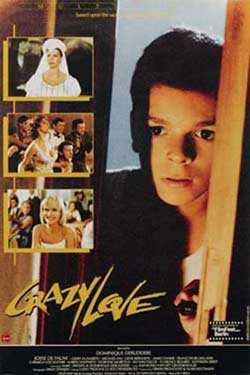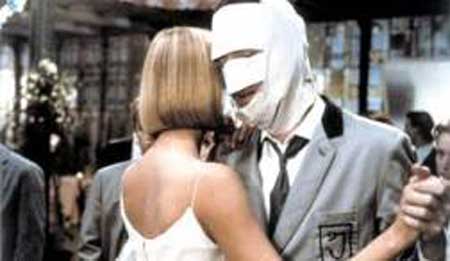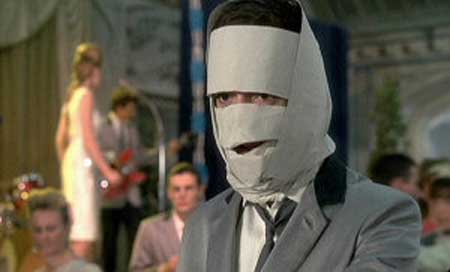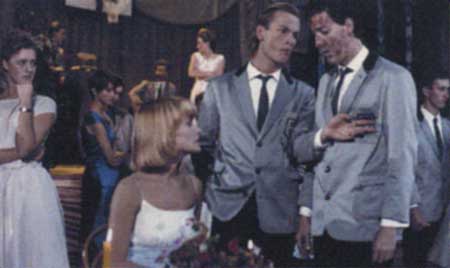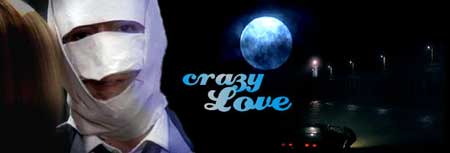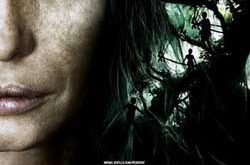SYNOPSIS:
1987 was a great year for Charles Bukowski screen adaptations. Barbert Schroeder offered up Barfly, a low-life epic of squalor and drunkenness starring Mickey Rourke and Faye Dunaway. In the same year, Dominique Deruddere presented his debut feature, Crazy Love, a much lesser-known film that stunned the arthouse crowd with its darkly amusing and disturbing edge. But since its initial release, this film has gone on to be regarded as one of the finest of the 80s.
REVIEW:
Directed by Dominique Deruddere
(aka Love Is a Dog From Hell)
Crazy Love began life as a short film entitled A Foggy Night, based on Bukowski’s taboo-breaking story The Copulating Mermaid of Venice, CA. Deruddere had wanted to expand the short into a full-length feature but was also aware of Bukowski’s dislike for another film based on his writings (Tales of Ordinary Madness). Deruddere and co. travelled over to America to meet Bukowski with the hope he would give their little film the seal of approval. The booze-ladened author’s now legendary response was that he was so pleased with Deruddere’s short he gave the filmmakers his blessing to turn it into a feature and even declared the short to be better than the original source material.
We first meet Harry as a twelve year old who falls in love with a princess who graces the screen of his local cinema. But after an encounter with an older woman who has had a bit too much to drink, his illusions of love are shattered. In reality things aren’t always as perfect as they are in fairytale movies, and thanks to Harry’s older friend his early attempts at getting laid leave him with experiences of adolescent horror. In the second story Harry is a nineteen year old ridden with acne, and this has turned him into a romantic pariah (if you throttled his neck, you’d produce enough custard to fill a bucket). Obsessed with a beautiful classmate, but lacking the confidence to talk to her, he instead turns to the liquor bottle knowing he can depend on it and that it won’t judge him because of the way he looks. However, through some drastic circumstances he does eventually get to dance with his teenage crush, albeit by having his head wrapped up in toilet paper for an oddly touching scene. The third and most disturbing story in the film finds Harry as a fully-grown homeless alcoholic who finally finds his perfect love in the form of a female corpse he steals from a parked hearse.
The synopsis above may sound dark and depressing, but director Deruddere somehow manages to keep things sweet and humourous, thanks in large part to Bukowski’s no-nonsense narrative style which Deruddere captures perfectly in this film. The result is a vast improvement over the previous Bukowski adaptation, Tales of Ordinary Madness. It’s an incredible movie, an emotionally-wrenching but comical portrait of a human being destined for life-long loneliness, and the film simply refuses to be sentimental about its subject. It’s honest and unflinching yet still comes from the heart. These cold presentations of estranged love are captured invariably in their settings, usually in vehicles.
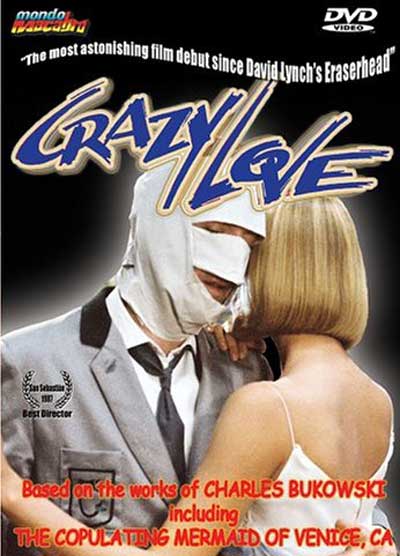
Car rides, car park rendezvous points, fairground rides and stolen hearses; in a metaphorical sense the car symbolizes Harry’s loneliness, and serves as his prison of shame. The only way he can escape is by distancing himself from reality, and with an act of revenge that befits both the fairytale ending and Bukowski’s own symbolism, our anti-hero does eventually get to hold his princess in his arms, and finally makes his escape to his dream world.
Crazy Love (1987)
 Horror News | HNN Official Site | Horror Movies,Trailers, Reviews
Horror News | HNN Official Site | Horror Movies,Trailers, Reviews
